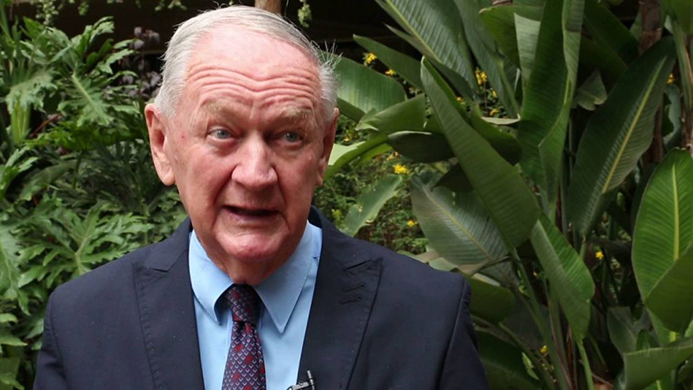IT HAS been a strange year. Watching the news, I see it is just 12 months since the Trump supporters attempted to overthrow the 2020 elections in the United States.
In that respect, the year has been a long time. In other respects, it seems to have vanished in no time at all.
In the United Kingdom on this side of the Atlantic, the passage of time has also been fast with Boris Johnson suddenly on the back foot after his amazing electoral performance in 2019.
I was never a supporter of Trump whom I thought was an American aberration.
I have the same view of Brexit which I view as a form of collective lemming activity with the UK committing suicide off the cliffs of Dover.
For the rest of the international scene, the futile attempts to contain the Chinese industrial revolution seems to continue.
American efforts to constrain globalisation after 50 years of being its main Champion in the World, is not only counterproductive to their own interests but also to the global economy.
As Alan Greenspan said in his book, The Age of Turbulence, globalisation has been the main driver of global growth since the Second World War and is one of the primary pillars of global productivity and specialisation.
This has lifted hundreds of millions of people out of absolute poverty when decades of well-meaning charity and aid has done little to do so.
But perhaps the biggest story of the year has been the global energy crisis caused by mankind suddenly waking up to the fact that he is less than a capable steward of the earth’s interests going forward.
We are the victims of our own success in turning the natural resources of the globe into our servants in the pursuit of wealth and happiness.
The only other element to challenge the energy crisis for its scope and severity has been that of the over action by the world community to this new engineered virus which seems to have been created in a laboratory. I ended up the year a victim.
I went to Church two weeks ago, did the usual routine on entry, normal temperature, no symptoms, enjoyed the service of worship and praise, went home, and woke up on Monday morning with a raging fever, sore throat and every sign that the invasion had happened.
The next four days were a blur. I woke up three nights in a row completely soaked in sweat and on two occasions was quite delirious.
Friends loaned me an oxygen concentrator which we then ran for 24/7 over the next 10 days to try and get my blood oxygen up to more normal levels.
Other friends arranged for a chest X-ray at home by a mobile unit staffed by a very pretty 26-year-old nurse and my doctor determined that I had pneumonia.
I was looked after, in isolation at home by the family with my doctor checking on me via WhatsApp every few hours.
At one stage he was dealing with over 20 cases like my own.
After three days, my wife Jeanette, went down with the same thing and although her symptoms were less severe than mine, nevertheless has had a difficult past 10 days.
We now seem to be on the mend, and I’ve just had another PCR test at home to determine if I’m anywhere close to being ready to resume some sort of activity next week. I am negative!!
Here at home in Zimbabwe we have continued to work hard to stabilise our economy and to remove some of the impediments to growth and development.
It is amazing to think that it is four years since we persuaded Robert Gabriel Mugabe to finally resign from the Presidency and to hand over power to his successor, Emmerson Mnangagwa.
Prior to this event I had been in the leadership for the local opposition Movement for Democratic Change since 1999.
I had served all those years in the National Executive, in one capacity or another and had completed two terms as a Member of Parliament for my hometown, Bulawayo.
As an African I am very proud to have served my country and our people in the effort to restore Zimbabwe to some sort of democratic sanity, after 37 years of dictatorship, genocidal suppression of minorities and complete idiocy on the economic policy front. In my Constituency,
I secured a 58 percent majority of the vote in 2008 and when I ran again in 2013 my majority rose to 73 percent.
With that kind of result when many of my colleagues were losing their seats to the governing Party, I was the Member of Parliament with the highest majority in the house.
All my life I have sought to be recognised as a white African, nothing more nothing less.
This is not easy given the history of my community as colonisers who took the country by force in 1893 and then went on to dominate all aspects of life with the total disregard to the values, culture, and traditions of the indigenous population.
When we gained Independence in 1980, after 20 years of civil war, the change in the way in which the country was governed was absolute.
The political culture of our indigenous tribes took over and even though we, as whites, had lived here all our lives, we exhibited little or no understanding of exactly what it meant for us.
My years in the political trenches taught me deep respect for ordinary Zimbabweans whose intelligence and basic decency is unrivaled in the region.
But perhaps my greatest reward has been simply to become known throughout the country as “Eddie”.
Of course, this has entailed a great deal of sacrifice by all concerned.
Has it been worth it, absolutely, as no nation on earth has ever turned out to be anything without struggle?
I resigned my seat in Bulawayo well in advance of the 2018 election to give my Party the chance to select a candidate acceptable to the Constituency.
Conflict for the succession of the leadership of the MDC following the death of its founding President, Morgan Tsvangirai, meant that that did not happen and in the final analysis the MDC put up three candidates, split the vote and lost the seat.
The greatest shock came after I had announced my resignation and had just participated in the final steps leading to the resignation of the State President.
This came in the form of an invitation from the new President to help put Zimbabwe back on its feet.
I accepted, even though this was not understood well by my former colleagues, as I felt it was in the national interest.
The rest has been a whirlwind, I have been able to act informally as an advisor to the President and some of his senior Ministers.
We have achieved a great deal and this country today does not resemble the Zimbabwe of yesterday in any respect.
In 2000 we were not a democracy, we were a harsh One-Party State, governed by a man who would not tolerate opposition in any shape or form.
Over the previous 20 years we had ruthlessly crushed all forms of organised political opposition activity, even using genocidal tactics against the main politically organised minority in the southwest.
By my estimate, three million Zimbabweans died prematurely over this period from every malady you can imagine.
Child and maternal mortality were the highest in the world, and at one stage the international community fed 70 percent of our population as our domestic economy disintegrated.
Over the same period, five million adult Zimbabweans fled the country for greener pastures where they put down roots and have made a substantial contribution to the different countries of their adoption.
When it came, the transition from Mugabe to Emmerson Mnangagwa closely resembled a similar transition when the Chinese leader Mau Tse Tung died in Beijing and the Chinese army installed as his successor a little-known reformist known as Deng Xiaoping.
Following the administration of some harsh medicine, our economy is now the fastest growing in Africa.
For the first time since independence in 1980, we are creating private sector jobs on a significant scale and although the process of raising living standards is slow, it has at least started.
What every Zimbabwean wants for Christmas this year, if anyone is really thinking about this out there, is recognition of the sacrifices we have made to get to where we are and instead of isolating us and tying our hands behind our backs in economic terms, simply allow us back into the global game of national growth. We will do the rest.
Cross is an economist and former legislator.




